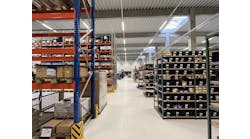In a December podcast, International Data Corporation (IDC) hosted the web conference, "IDC FutureScape: Worldwide Manufacturing 2015 Predictions." The session provided organizations with insight and perspective on long-term industry trends along with new themes that may be on the horizon.
According to the marketing intelligence provider, the 10 most interesting trends affecting the role of IT in manufacturing organizations are:
- By 2017, manufacturers will actively channel 25% of their IT budgets through industry clouds that enable seamless and flexible collaboration models;
- In 2015, product quality, including compliance, will underpin two thirds of all IT application investments across the manufacturing organization;
- By 2016, 30% of manufacturers will invest substantially in increasing the visibility and analysis of information exchange and business processes within the company and with partners;
- In 2015, customer centricity requires higher standards for customer service excellence, efficient innovation and responsive manufacturing, which motivates 75% of manufacturers to invest in customer-facing technologies;
- By 2017, 50% of manufacturers will explore the viability of micro logistics networks to enable the promise of accelerated delivery for select products and customers;
- By 2018, 75% of manufacturers will be coordinating enterprise-wide planning activities under the umbrella of rapid integrated business planning;
- By 2016, 70% of global discrete manufacturers will offer connected products, driving increased software content and the need for systems engineering and a product innovation platform;
- By 2018, 40% of top 100 discrete manufacturers and 20% of top 100 process manufacturers will provide product-as-a-service platforms;
- In 2015, 65% of companies with more than 10 plants will enable the factory floor to make better decisions through investments in operational intelligence;
- Investments that enable digitally executed manufacturing will increase 50% by the end of 2017, as manufacturers seek to be more agile in the marketplace.



